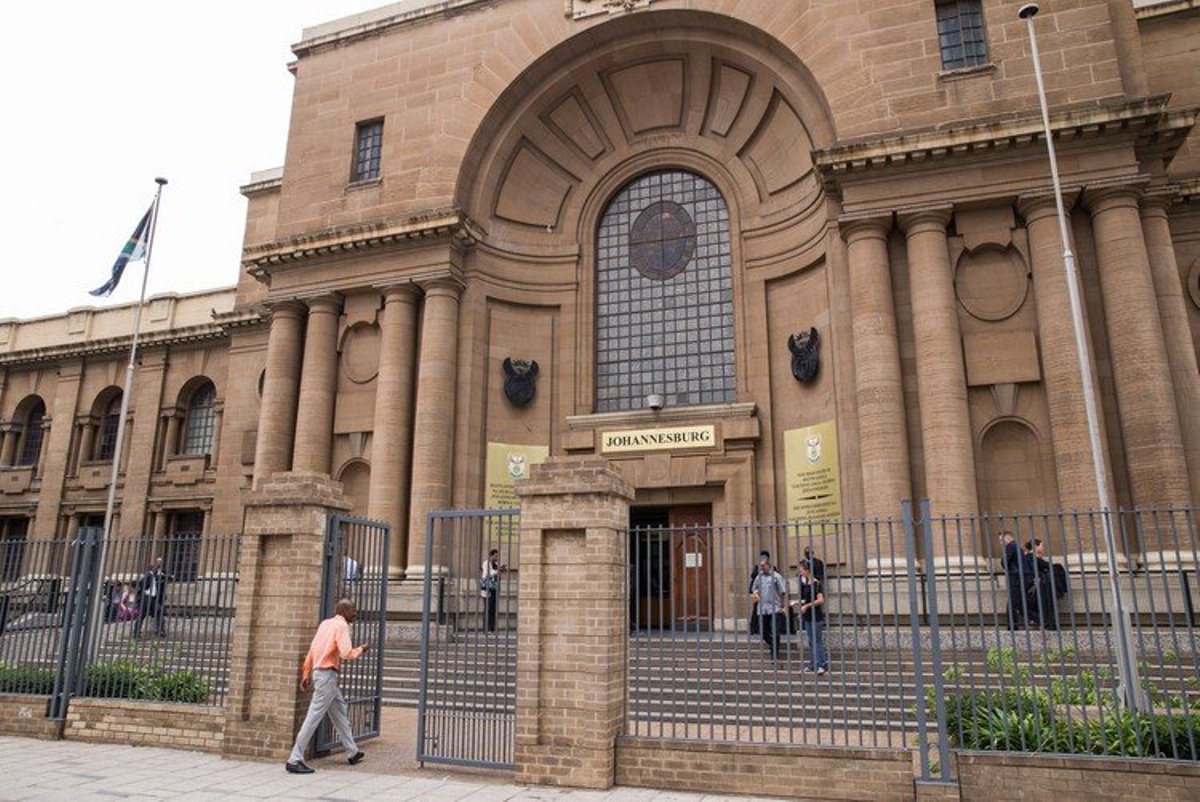
GroundUp wins court case against the Legal Practice Council
GroundUp has won a case against the Legal Practice Council (LPC), with a ruling that it must properly investigate a complaint against attorney Lesley Ramulifho who is implicated in the misuse of funds from the National Lotteries Commission (NLC). Attorney Lesley Ramulifho, implicated in looting at the National Lotteries Commission, attempted to prevent publication of […]

GroundUp has won a case against the Legal Practice Council (LPC), with a ruling that it must properly investigate a complaint against attorney Lesley Ramulifho who is implicated in the misuse of funds from the National Lotteries Commission (NLC).
- Attorney Lesley Ramulifho, implicated in looting at the National Lotteries Commission, attempted to prevent publication of allegations about him by GroundUp.
- GroundUp laid a complaint with the Legal Practice Council (LPC) claiming that Ramulifho had made dishonest statements under oath in court proceedings, falsified documents and forged signatures on affidavits in his attempt to stop GroundUp publishing.
- The court has now ordered the LPC to properly investigate the matter and Ramulifho to pay GroundUp’s costs.
The complaint against Ramulifho was laid by GroundUp Editor Nathan Geffen, relating to four instances in which Geffen claimed the attorney made dishonest statements under oath in court proceedings in which he attempted to compel the non-profit news agency to remove a series of articles on looting at the NLC.
However, the LPC dismissed the complaint, claiming Ramulifho’s conduct “did not warrant misconduct proceedings”, that Ramulifho had not acted in his professional capacity, that he had “given a reasonable explanation”, and that there was insufficient evidence against him.
GroundUp was advised that an appeal was not possible because an appeal tribunal had not yet been established.
GroundUp then approached the Johannesburg High Court, seeking to review the dismissal of the complaint.
Only Ramulifho opposed the application.
In her ruling, Judge Seena Yacoob said attorney Ramulifho had featured negatively in a series of articles about recipients of grants from the NLC, and he launched an urgent application to prevent the publication of allegations about him and to obtain the removal of articles about him from GroundUp’s website.
“He also sought a retraction. The application was struck (from the roll) for lack of urgency. Mr Ramulifho launched the application through his own firm and acted as his own attorney,” Judge Yacoob said.
The judge said GroundUp’s complaint to the LPC was based on allegations that he had falsified documents and forged signatures on affidavits.
“The allegations were of perjury and forgery, obviously serious allegations against an ordinary person, but which take on far more weight when made against an officer of the court, even when that person is acting in his personal capacity. This is because the integrity of officers of the court must be beyond question, as this impacts on the integrity of the whole system of the administration of justice,” Judge Yacoob wrote.
She noted that the LPC committee, which considered the complaint, consisted of just one person, Mr Mayet, who had dismissed the complaint.
Among the reasons for this were that “the evidence” was insufficient and the allegations would need to be tested in another forum to be “somehow verified”.
GroundUp, in its court application, said the committee had fundamentally misunderstood its role, its powers and obligations.
Among the points raised by Ramulifho were that the complaint was based on hearsay and conjecture, that he had not been acting in a professional capacity, and it was not for the LPC to make a case against the accused, but the complainant.
Judge Yacoob said some of the issues he raised went to the merits of the matter, rather than the grounds of review. But, she said, it was “mind-boggling that an attorney appeared to take the position that he was entitled to act as the applicant alleged he had acted and bear no professional consequence”.
She said the LPC had not asked for further evidence or information (from GroundUp) but had instead “closed its file”.
Judge Yacoob said the preamble to the Legal Practice Act states that its purpose includes regulating the legal profession in the public interest and ensuring the accountability of the legal profession to the public.
“In my view, this is relevant to how the role of the LPC in complaints against legal practitioners is interpreted.
“The committee has extensive powers, which are set out in Rule 40 of the LPC Rules. It chose, incomprehensibly, not to exercise them. It is required to do so.
“The committee is not a court which has to decide matters on pleadings and evidence before it by the parties. There is no onus on the complainant. A complainant simply has to bring conduct to the attention of the committee. Any other interpretation would be prejudicial to the public interest.
“It must follow up on the issue raised, obtain information and interview witnesses, if the matter requires it … It was clear that this is a matter that required it.
“To expect a member of the public complaining about the conduct of a legal practitioner to bring a complete case would be a mockery of what the Act seeks to achieve.
“The LPC is there to assist members of the public, rather than making it harder for them to obtain redress.”
Judge Yacoob said the approach taken by the LPC in this matter was fundamentally flawed and inconsistent with not only the literal meaning of the Act, but also its stated purpose.
She said to require “some other authority must first make a decision” or to require that a complainant make out a case that is already complete and ready to be adjudicated upon “makes a mockery of … and belies the reason for the existence of the investigating committee”.
She reviewed and set aside “as being unlawful, invalid, and unconstitutional”, the dismissal of GroundUp’s complaint, and directed that the LPC investigate the complaint afresh through a proper investigation in accordance with the Act and the rules.
Mayet “shall in no way be involved in the fresh investigation to be conducted,” the judge wrote.
She ordered Ramulifho to pay GroundUp’s costs.
Published originally on GroundUp | By Tania Broughton
